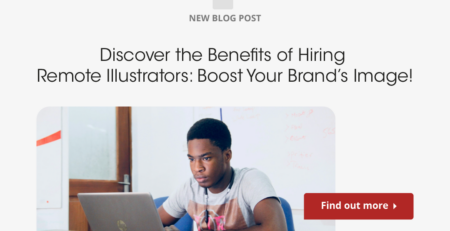Revolutionize Your Hiring Game: Creative Recruitment Strategies You Can’t Afford to Miss!
In today’s competitive job market, attracting top talent requires more than just a standard job posting. Companies are now tasked with being more innovative and strategic in their recruitment efforts. Revolutionizing your hiring game with creative recruitment strategies is not just an option; it’s a necessity. This comprehensive guide delves into the most effective and innovative recruitment strategies that can set your company apart and help you attract the best candidates.
The Importance of Creative Recruitment Strategies
The traditional methods of recruitment are no longer sufficient in the fast-paced and ever-changing job market. Creative recruitment strategies not only help in attracting top talent but also in building a strong employer brand. They make your company stand out as a desirable place to work, which is crucial in a competitive job market.
Leveraging Social Media for Recruitment
Social media platforms are powerful tools for reaching potential candidates. By outsourcing your social media, you can effectively target your recruitment efforts and showcase your company culture. Platforms like LinkedIn, Twitter, and Facebook allow for direct engagement with job seekers and provide a platform to highlight your company’s values and work environment.
The Role of Employee Referral Programs
Employee referral programs are a testament to the power of word-of-mouth. Encouraging your current employees to refer potential candidates can lead to higher quality hires. These programs can be incentivized to motivate employees to participate actively in the recruitment process.
Embracing Remote Workforce
The rise of remote work has expanded the talent pool globally. By managing a remote workforce effectively, companies can tap into a wider range of candidates. This approach not only broadens the talent pool but also caters to the growing demand for flexible work arrangements.
Utilizing Staffing Agencies
Staffing agencies can be a valuable resource in your recruitment strategy. They specialize in matching companies with candidates that fit their specific needs. Using a staffing agency can save time and resources in the recruitment process, allowing companies to focus on their core operations.
Innovative Interview Techniques
Moving beyond the traditional interview format can provide deeper insights into a candidate’s suitability. Techniques such as group interviews, practical tasks, and video interviews can offer a more comprehensive view of the candidate’s skills and personality.
The Power of Employer Branding
Employer branding is crucial in attracting top talent. A strong employer brand communicates what makes your company a great place to work. It encompasses everything from your company culture to your values and work environment. Effective employer branding can significantly enhance your recruitment efforts.
Offering Competitive Salaries and Benefits
To attract the best candidates, offering competitive salaries and benefits is essential. Understanding the market and ensuring your salary is competitive can make a significant difference in attracting top talent.
The Future of Recruitment
The future of recruitment lies in the continuous adaptation and implementation of creative strategies. Staying ahead of the curve and being open to innovative recruitment methods will be key to attracting and retaining top talent.
Revolutionizing your hiring game with creative recruitment strategies is essential in today’s competitive job market. By leveraging social media, embracing remote work, utilizing staffing agencies, and focusing on employer branding, companies can attract top talent and stay ahead in the recruitment game. Remember, the goal is not just to fill positions but to attract individuals who will contribute to the growth and success of your company.
Most Asked Questions About Creative Recruitment Strategies
- How can social media be effectively used in recruitment?
- What are the benefits of employee referral programs in recruitment?
- How does remote work impact recruitment strategies?
- What are the advantages of using staffing agencies for recruitment?
- How can companies improve their employer branding for better recruitment?
- What role does competitive salary and benefits play in attracting top talent?
- What are the future trends in recruitment strategies?

How Can Social Media Be Effectively Used in Recruitment?
Social media has transformed the recruitment landscape, offering a dynamic platform for companies to engage with potential candidates. Here’s how you can effectively use social media in your recruitment efforts:
- Define Your Target Audience: Understand who your ideal candidates are and which social media platforms they frequent. This will help you tailor your recruitment efforts to the right audience.
- Showcase Company Culture: Use social media to highlight your company culture, values, and what makes it a great place to work. This can attract candidates who align with your company’s ethos.
- Engage with Content: Post engaging content that resonates with your target audience. This can include employee testimonials, behind-the-scenes looks at your company, and industry insights.
- Leverage Employee Networks: Encourage your employees to share job postings and positive experiences about working at your company. This can extend your reach and lend credibility to your recruitment efforts.
- Utilize Paid Advertising: Platforms like LinkedIn and Facebook offer targeted advertising options that can help you reach potential candidates more effectively.
- Monitor and Respond: Actively monitor your social media channels and respond to inquiries and comments. This shows that your company values engagement and can help build a positive image.
- Analyze and Adapt: Use analytics tools to track the success of your social media recruitment efforts. This data can help you refine your strategy and improve your results over time.
By outsourcing your social media, you can ensure that your recruitment efforts are professional, targeted, and effective. Social media offers a unique opportunity to connect with potential candidates in a more personal and engaging way, making it an essential tool in your recruitment arsenal.
What Are the Benefits of Employee Referral Programs in Recruitment?
Employee referral programs are a powerful tool in the recruitment process, offering numerous benefits to both employers and employees. Here are the key advantages:
- Higher Quality Candidates: Referrals often bring in candidates who are a better fit for the company culture and job requirements, as they come pre-vetted by current employees.
- Faster Hiring Process: Referral hires typically have a shorter hiring timeline, as the initial screening process is expedited through the referral.
- Cost-Effective: Compared to traditional recruitment methods, referral programs can be more cost-effective, reducing the need for extensive advertising and recruitment agency fees.
- Increased Employee Engagement: Implementing a referral program can boost employee engagement and morale, as employees feel valued and involved in the growth of the company.
- Lower Turnover Rates: Employees hired through referrals tend to have higher retention rates, as they often have a better understanding of the company culture and expectations before joining.
- Builds a Strong Employer Brand: A successful referral program can enhance your employer brand, showcasing your company as a place where employees are happy to refer friends and colleagues.
- Leverages Your Network: Referral programs tap into the extensive networks of your employees, reaching potential candidates who might not be actively seeking new opportunities but are open to the right offer.
To maximize the benefits of employee referral programs, it’s important to recognize and reward employees for successful referrals. This not only incentivizes participation but also acknowledges the valuable role employees play in the recruitment process.
How Does Remote Work Impact Recruitment Strategies?
The rise of remote work has significantly impacted recruitment strategies, offering both challenges and opportunities for companies. Here’s how remote work is shaping recruitment:
- Wider Talent Pool: Remote work allows companies to tap into a global talent pool, removing geographical limitations and enabling access to a diverse range of candidates.
- Emphasis on Digital Proficiency: Recruitment strategies now place a greater emphasis on digital skills and the ability to work effectively in a remote environment.
- Adaptation of Interview Processes: Companies have adapted their interview processes to accommodate remote candidates, utilizing video interviews and virtual assessments.
- Focus on Communication Skills: Effective communication is key in a remote work setting, leading recruiters to prioritize candidates with strong communication skills.
- Importance of Self-Motivation: Self-motivation and the ability to work independently are critical in remote roles, influencing the traits and skills recruiters look for in candidates.
- Enhanced Employer Branding: Companies are leveraging their remote work policies as part of their employer branding, attracting candidates who value flexibility and work-life balance.
- Investment in Technology: The shift to remote work has necessitated investment in technology and tools to facilitate remote recruitment, onboarding, and collaboration.
- Training for Remote Management: Companies are focusing on training managers for effective remote leadership, ensuring they can support and engage remote teams successfully.
- Reevaluation of Benefits: The benefits package offered to employees has evolved to include remote work-specific perks, such as home office stipends and flexible working hours.
- Cultural Fit: With remote work, ensuring a candidate’s fit with the company culture is more crucial than ever, as building a cohesive remote team requires a strong cultural alignment.
The impact of remote work on recruitment strategies is profound, requiring companies to adapt and innovate to attract, hire, and retain top talent in a remote work environment.
What Are the Advantages of Using Staffing Agencies for Recruitment?
Utilizing staffing agencies for recruitment offers several advantages for companies looking to streamline their hiring process and secure top talent. Here are the key benefits:
- Access to a Wide Talent Pool: Staffing agencies have extensive networks of candidates, providing access to a diverse talent pool that companies might not be able to reach on their own.
- Expertise in Recruitment: Staffing agencies specialize in recruitment, bringing expertise and best practices to the hiring process. This can lead to more effective and efficient recruitment outcomes.
- Time and Cost Savings: By outsourcing recruitment to a staffing agency, companies can save time and resources that would otherwise be spent on lengthy recruitment processes.
- Flexibility: Staffing agencies offer flexibility, providing temporary, temp-to-hire, and permanent staffing solutions to meet the varying needs of companies.
- Reduced Hiring Risks: Staffing agencies often offer guarantees and conduct thorough screenings, reducing the risks associated with hiring new employees.
- Industry-Specific Knowledge: Many staffing agencies specialize in specific industries, offering insights and access to candidates with the precise skills and experience required.
- Speed: Staffing agencies can significantly speed up the hiring process, helping companies fill vacancies quickly and efficiently.
- Support for HR: Small and medium-sized businesses, in particular, can benefit from the additional HR support provided by staffing agencies, from handling paperwork to managing payroll for temporary staff.
- Market Insights: Staffing agencies can provide valuable market insights, including salary benchmarks and trends, helping companies make informed hiring decisions.
- Focus on Core Business: By handling the recruitment process, staffing agencies allow companies to focus on their core business activities, improving overall productivity and performance.
For companies looking to enhance their recruitment process, using a staffing agency can provide a strategic advantage, offering expertise, access to talent, and efficiency gains.
How Can Companies Improve Their Employer Branding for Better Recruitment?
Improving employer branding is crucial for attracting top talent and standing out in a competitive job market. Here are strategies companies can employ to enhance their employer branding:
- Define Your Employer Value Proposition (EVP): Clearly articulate what makes your company a great place to work. Your EVP should highlight your company culture, values, and the benefits of working for your organization.
- Leverage Social Media: Use social media platforms to showcase your company culture, employee stories, and behind-the-scenes glimpses of your workplace. This can help build a positive image and attract potential candidates.
- Create Engaging Content: Develop content that resonates with your target audience, such as blog posts, videos, and infographics that highlight your company’s achievements, employee experiences, and workplace culture.
- Encourage Employee Advocacy: Empower your employees to share their positive experiences and stories on social media. Employee testimonials can be powerful in building trust and authenticity around your employer brand.
- Showcase Career Development Opportunities: Highlight the career progression and learning opportunities available within your company. Candidates are attracted to companies that invest in employee growth and development.
- Participate in Industry Events: Engage with your community by participating in industry events, conferences, and webinars. This can help raise your company’s profile and attract attention from potential candidates.
- Highlight Diversity and Inclusion: Showcase your commitment to diversity and inclusion. A diverse and inclusive workplace is increasingly important to job seekers.
- Offer Competitive Benefits: Ensure your benefits package is competitive and meets the needs of your workforce. This includes not just salary, but also health benefits, work-life balance initiatives, and flexible working arrangements.
- Collect and Share Employee Feedback: Gather feedback from your employees about their experiences working for your company and use this feedback to make improvements. Sharing positive feedback publicly can also enhance your employer brand.
- Monitor Your Employer Brand: Regularly assess your employer brand by monitoring online reviews on platforms like Glassdoor and seeking feedback from candidates and employees. Use this information to continuously improve your employer branding efforts.
Improving your employer branding requires a strategic and consistent approach. By focusing on these areas, companies can build a strong employer brand that attracts and retains top talent.
What Role Does Competitive Salary and Benefits Play in Attracting Top Talent?
Competitive salary and benefits are crucial in attracting top talent to your organization. Here’s why they play a pivotal role in the recruitment process:
- Attracts High-Quality Candidates: Offering a competitive salary and comprehensive benefits package can attract high-quality candidates who are looking for employers that value their contributions and well-being.
- Enhances Employer Brand: Companies known for offering attractive compensation and benefits are often viewed as desirable places to work, enhancing their employer brand and attracting more applicants.
- Improves Employee Satisfaction and Retention: Competitive compensation contributes to higher employee satisfaction, which can lead to increased retention rates and reduced turnover costs.
- Reflects Company Values: A competitive salary and benefits package reflects a company’s commitment to its employees, demonstrating that it values their health, well-being, and financial security.
- Supports Diversity and Inclusion: Offering a range of benefits that cater to diverse needs can support a company’s diversity and inclusion goals, attracting a broader range of candidates.
- Competitive Edge in the Job Market: In a competitive job market, offering a competitive salary and benefits can give companies an edge in attracting top talent over competitors.
- Encourages Employee Engagement: Employees who feel they are fairly compensated are more likely to be engaged and motivated, contributing positively to the company’s culture and productivity.
- Attracts Passive Candidates: Competitive compensation can attract passive candidates who are not actively looking for a job but would consider a move for the right offer.
- Supports Long-Term Growth: Attracting and retaining top talent through competitive compensation supports the long-term growth and success of the company.
- Aligns with Industry Standards: Offering competitive salary and benefits ensures that companies remain in line with industry standards and expectations, which is important for maintaining a competitive position in the market.
To ensure your salary and benefits are competitive, it’s important to conduct regular market research and understand if your salary is competitive. This will help you attract and retain the talent necessary for your company’s success.
What Are the Future Trends in Recruitment Strategies?
The future of recruitment is shaped by technological advancements, changing workforce dynamics, and evolving candidate expectations. Here are key trends that are expected to influence recruitment strategies:
- Increased Use of Artificial Intelligence (AI): AI is revolutionizing recruitment by streamlining processes, from sourcing candidates to scheduling interviews. AI can also enhance candidate matching by analyzing resumes and job descriptions for the best fit.
- Virtual Reality (VR) and Augmented Reality (AR) in Recruitment: VR and AR are being used to create immersive job previews and virtual office tours, allowing candidates to experience the workplace environment remotely.
- Focus on Candidate Experience: Providing a seamless and engaging candidate experience is becoming increasingly important. This includes clear communication, streamlined application processes, and personalized interactions.
- Emphasis on Soft Skills: As automation and AI take over routine tasks, soft skills like creativity, empathy, and adaptability are becoming more valuable. Recruitment strategies will place a greater emphasis on these skills.
- Remote Work and Global Talent Pool: The rise of remote work is expanding the talent pool globally, leading companies to adapt their recruitment strategies to attract and manage a remote workforce.
- Data-Driven Recruitment: Leveraging data analytics in recruitment allows companies to make informed decisions, predict hiring needs, and improve the effectiveness of their recruitment strategies.
- Diversity and Inclusion: There is a growing focus on diversity and inclusion in recruitment, with companies striving to create more diverse and inclusive workplaces.
- Employer Branding: Strong employer branding will continue to be crucial in attracting top talent. Companies will invest in building their brand as an employer of choice.
- Flexible Work Arrangements: Offering flexible work arrangements, such as part-time roles, flexible hours, and remote work options, will be a key trend in attracting and retaining talent.
- Continuous Learning and Development: Companies will emphasize continuous learning and development opportunities to attract candidates who are looking to grow and advance in their careers.
Staying ahead of these trends and adapting recruitment strategies accordingly will be essential for companies looking to attract and retain top talent in the future. For more insights into the future of recruiting, consider exploring resources like LinkedIn’s Future of Recruiting 2024 and HBR’s Creative Strategies for Recruiting Talent During a Labor Shortage.
Conclusion
Revolutionizing your hiring game with creative recruitment strategies is essential in today’s competitive job market. From leveraging social media and staffing agencies to focusing on employer branding and offering competitive salaries, companies must employ a multifaceted approach to attract top talent. Embracing remote work, focusing on employee referrals, and staying ahead of future recruitment trends are also key to building a successful recruitment strategy. By implementing these innovative and effective recruitment strategies, companies can not only attract but also retain the best candidates, ensuring long-term success and growth. Remember, the goal of recruitment is not just to fill vacancies but to build a strong, cohesive team that will drive your company forward.












